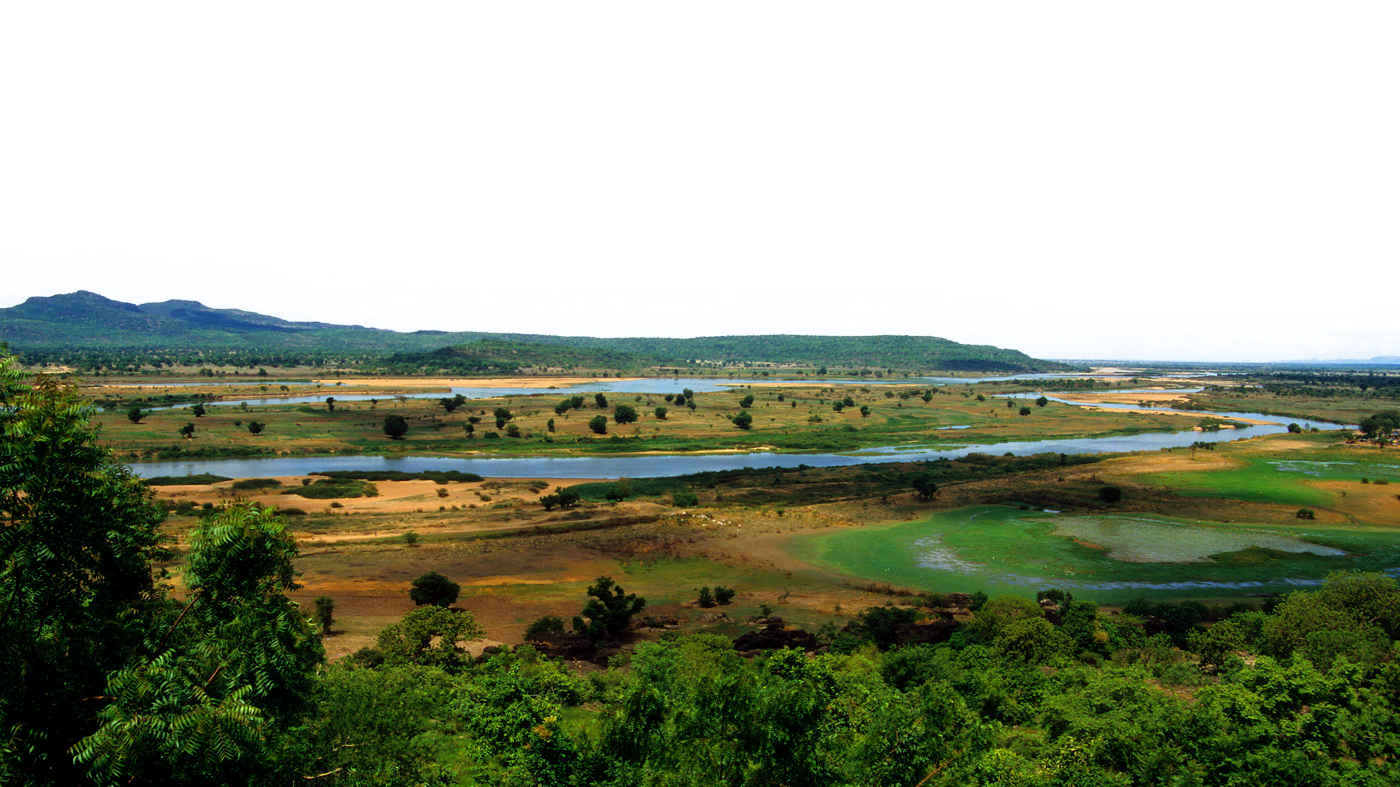In 2007, Gyenom, known as Gee, travelled from Kaduna, Nigeria to Barneveld. He was schooled as a lawyer but went back to his hometown to help with the family’s poultry farm. To gain more knowledge about managing a farm, he took the opportunity to study at ATCI. To this day, he keeps in touch with his peers and tutors and remembers his time in Barneveld as very special and important.
Text: Sabien Froger Photo’s: Gyenom Dau
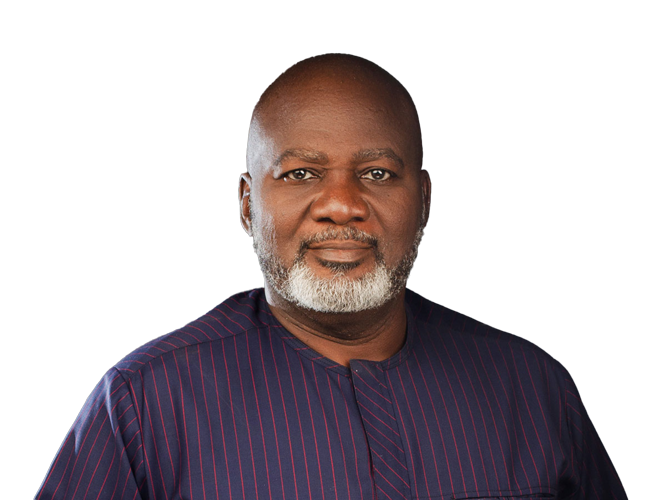
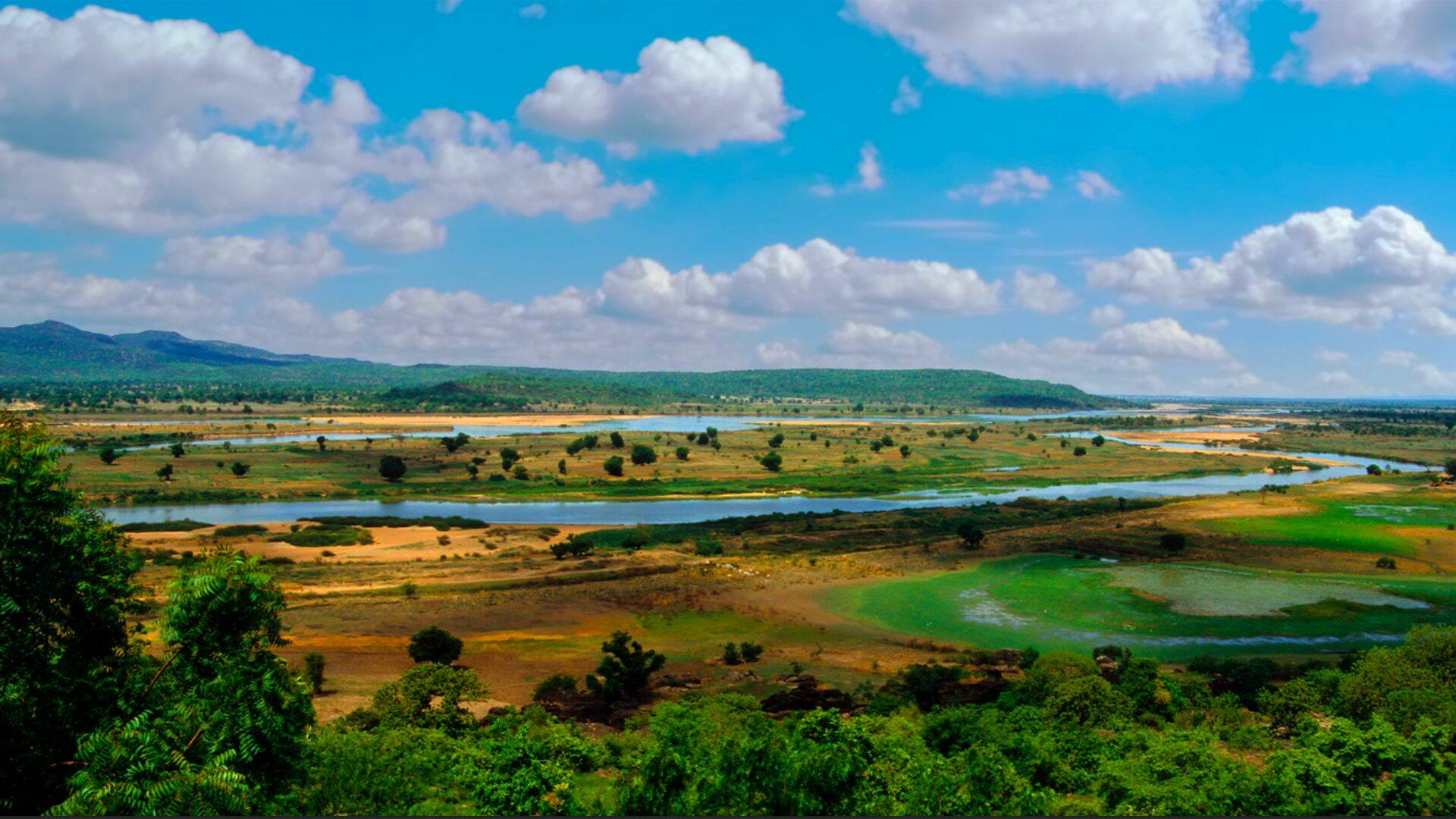
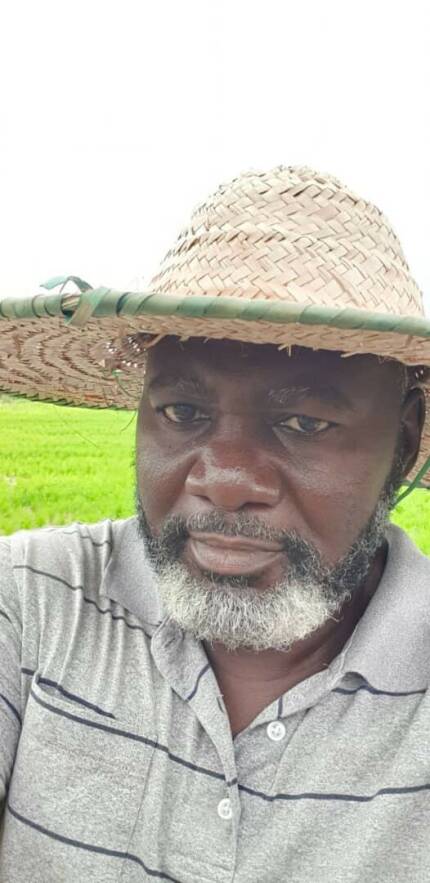
Gee learned about the existence of Aeres and ATCI when someone who attended the same church as his parents, was looking for people to support him on his application for the programme. “My parents redirected him to me, since I was the one running our families poultry farm. One day, he came into my office with a pamphlet. I was immediately interested and started doing research, after I helped him of course. That’s how I came to make my own application.”
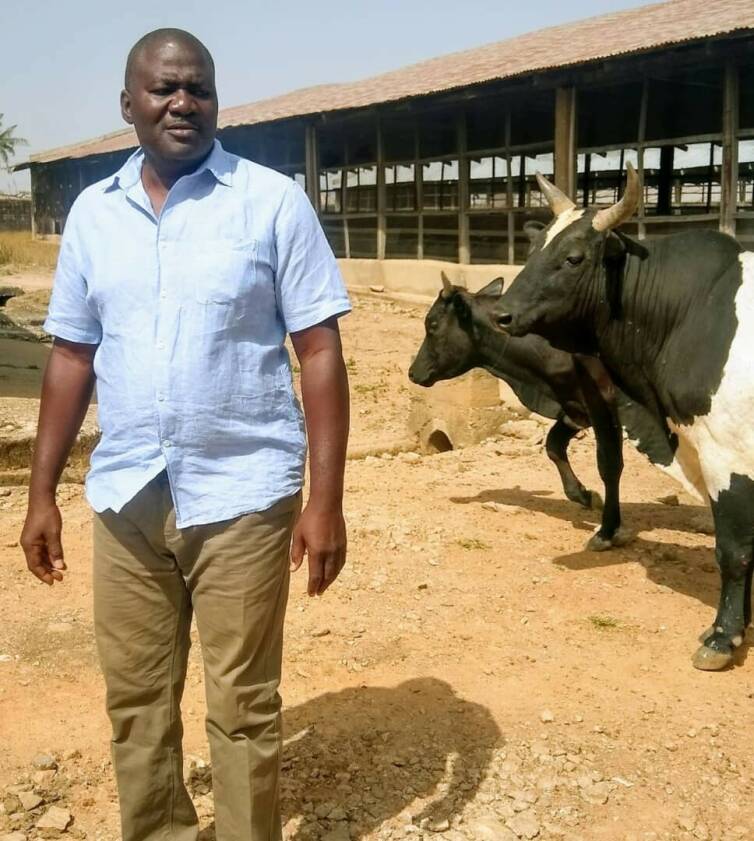
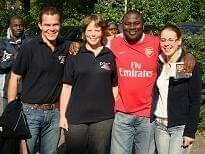
In the application form, appliers are asked to write something about the reasons why they want to follow the courses and explain how they would use the knowledge they take back to their business. “I wrote about my role of managing the poultry farm, and wanting, and needing, more knowledge. I described my work schedule, gave them a description of the farm and our staff and explained how I would help our community with my new knowledge.” Regarding the last part, Gee wrote about the industrial training programmes Nigerian agricultural schools incorporate in their curriculum. “The students have to take internships at local agricultural farms. We also took these students in, sometimes up to ten students at a time. We teach them our ways of managing and running the poultry farm and they take that knowledge with them in the remainder of their studies and beyond. So in that way, we influence their further career and help them to build better and more sustainable companies. That is why I wanted to have more knowledge about poultry farming.”
It took Gee three times to be admitted into the programme. “Later they told me that they did that on purpose. Not because they thought I wasn’t good enough or didn’t fit the programme, but because they wanted to test my resolve, how serious and motivated I was to get into Aeres. Well, that clearly worked because I kept trying every admission round and got in.”
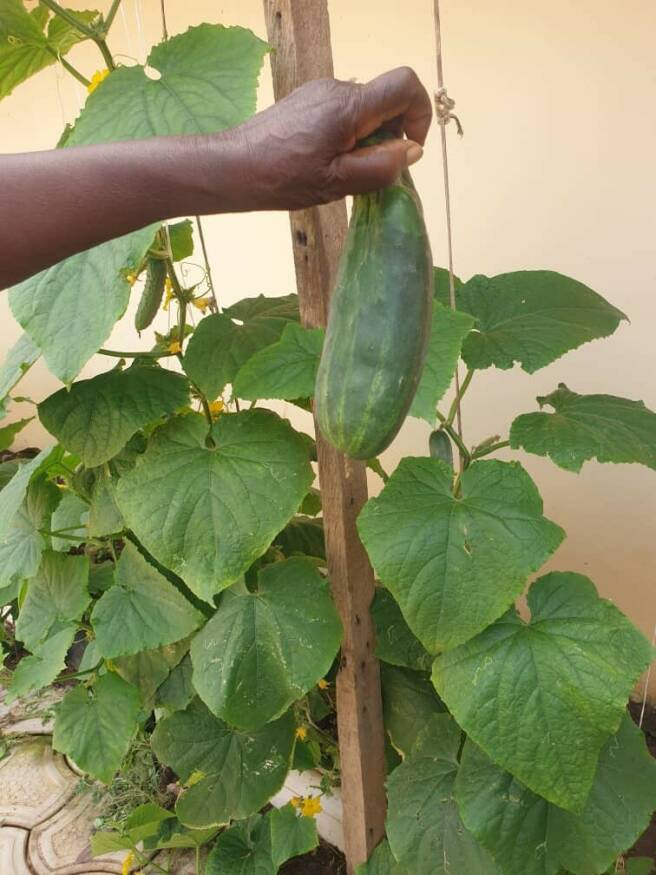
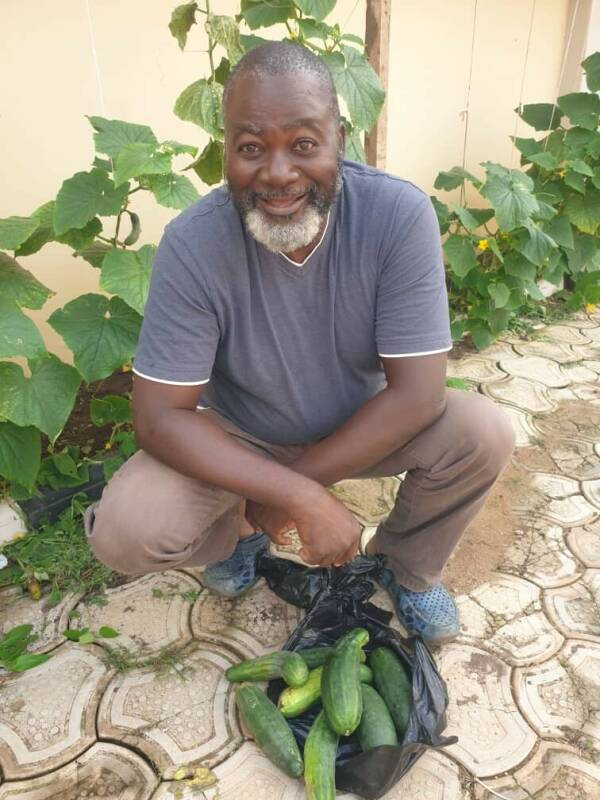
In 2007, Gee made the long journey from Nigeria to the Netherlands to start his courses in poultry and feed milling. “I immediately felt like the courses were designed with me personally in their mind. It fit me like a glove. The ‘learning by doing concept’ was very appealing and a new and valuable experience.” In Nigeria, the way of teaching is more focused on reading, attending seminars and workshops, but there isn’t a big focus on the practical side, according to Gee. In his courses Gee learned more about a sustainable way to manage a poultry farm and for example what is important to keep in mind when choosing the kind of feed you give to your chickens. “When you are at home, just feeding the chickens and caring for them and running your business, you don’t think about the ‘small details’. At Aeres, that is the focus point.”
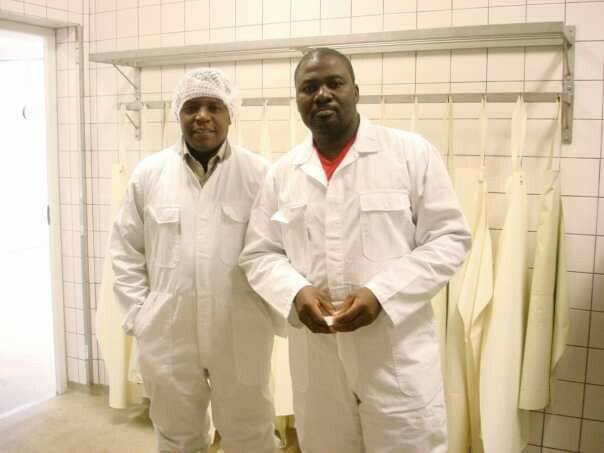
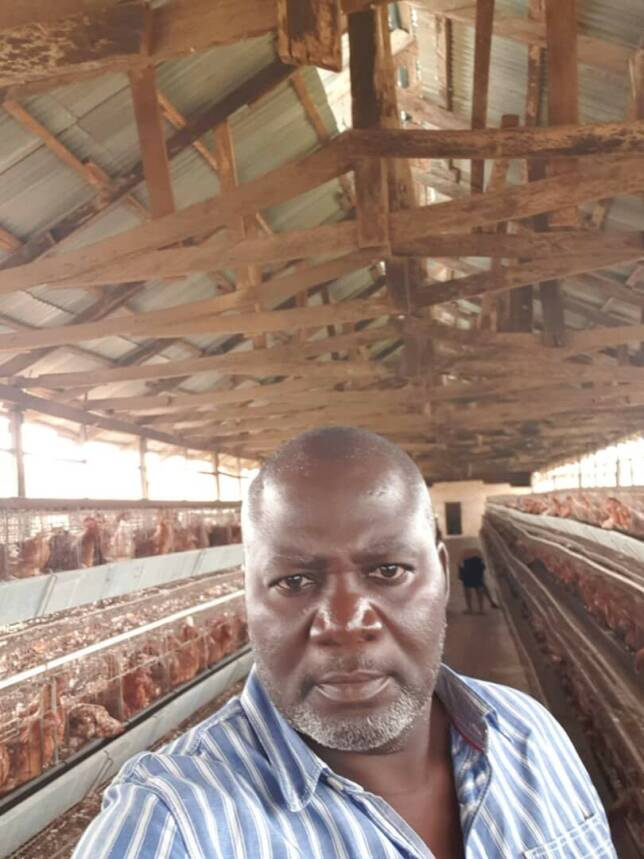
Gee experienced a lot of differences when he got to the Netherland. “Of course, it is a very different country and the culture and people differ a lot from Nigeria. But I already knew that because I visited Europe before. In fact, until I was eight years old, I lived in Great-Britain and I went to school there. So I was already used to the weather for example, luckily. Because of course, it is way colder than in Nigeria.” Besides the cultural differences and colder climate, Gee noticed a big difference in the way farming is practiced. “In Nigeria, when our birds get sick, we just call the vet who prescribes drugs for example. We don’t think so much about the reasons why the birds get sick and what we can do to prevent it. In the Netherlands, the focus is much more on the prevention of sickness and what you can do to keep the birds healthy, happy and productive.” The same applies to the housing of the poultry. “In Nigeria we just use the cheapest materials that are available to us. Most of the time, that means roofs out of aluminium. Naturally, that is not the best choice for the climate, because it conducts a lot of heat from the sun, which is very strong in our country. That is why, at certain times of the year the birds are getting sick and we don’t really think about why that happens. At Aeres I learned a lot about in what environment and housing the birds thrive and stay healthy. That was really life changing.”
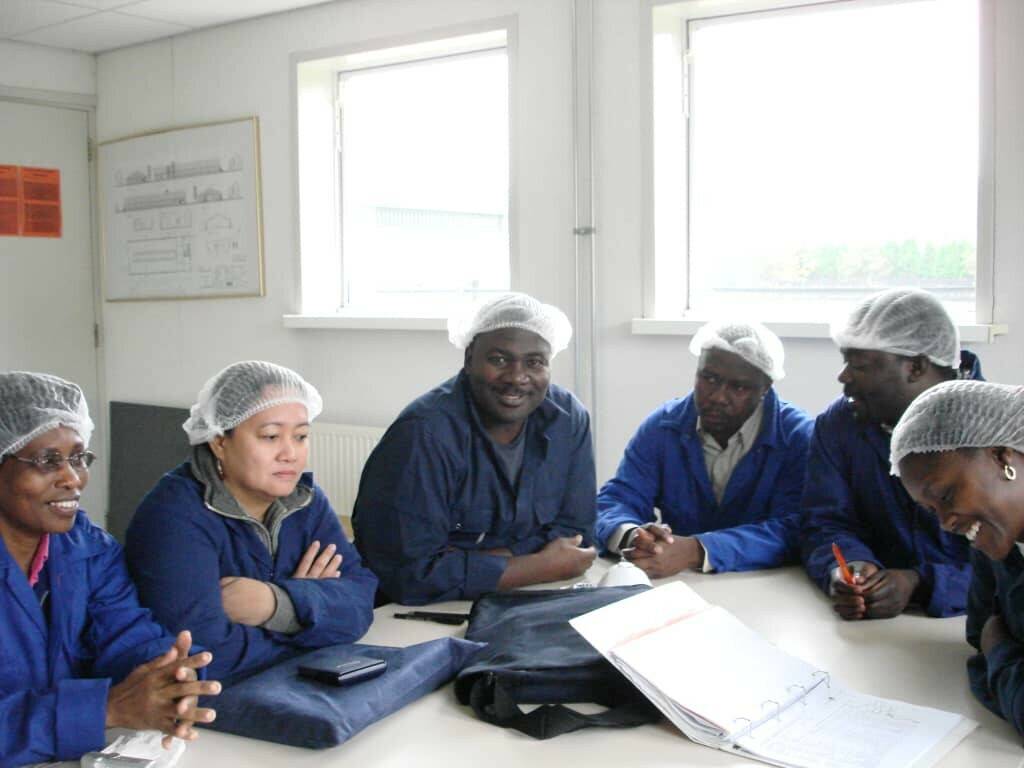
The same applies to the feeding of the animals. “In Nigeria, we just buy what is cheapest. But what is cheapest isn’t always the best for you chickens. You tend to compare food just by price, but there are a lot more factors that you should take into consideration when choosing bird feed. More expensive feed, means better feed, means healthier chickens and subsequently more revenue because you have less dead chickens. If birds get sick less, you don’t have to buy as many drugs and the vet doesn’t have to come, so you save that money. In the end, it may turn out to be cheaper than the cheap feed you were using.”
When Gee got back to Nigeria and his farm, he decided to start his own poultry management and feed milling consultancy service. He named it OVO Concepts. “Right now, that is my main activity. We are a family business, so I am not the only one working there, which means that younger members of the family and other staff keep the farm running from day to day. I advise people who want to set up a farm about a lot of aspects: we do some feasibility reports for them, inspect the location where they want to set it up, give them advice on management and get them a good overall start.”
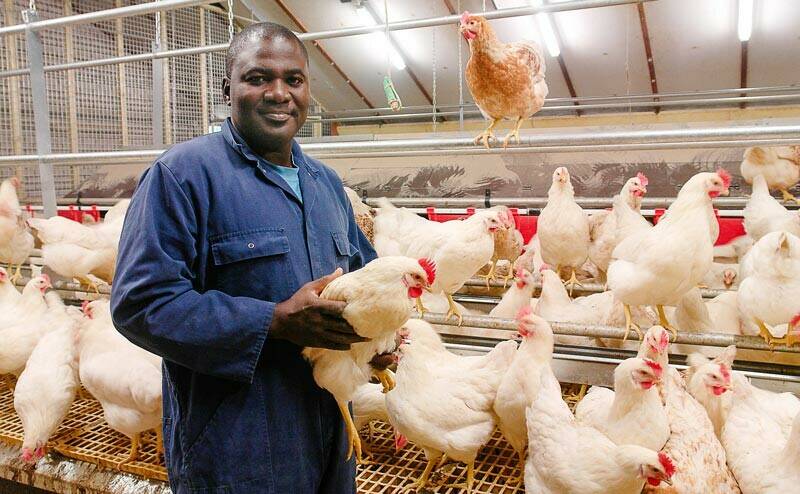
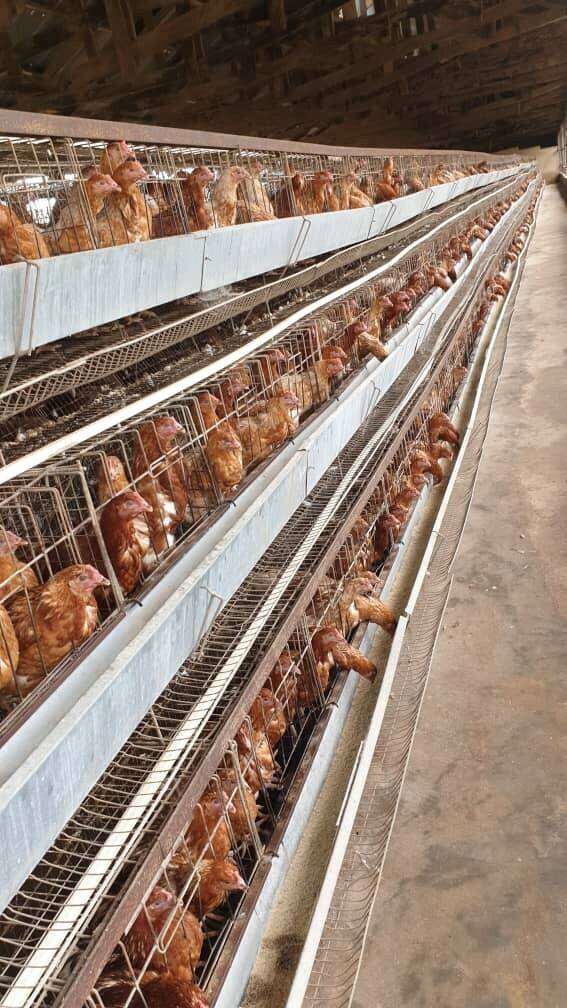
Gee sees a lot of potential in chickens as a sustainable protein for the future. “We face a big challenge because Africa’s population will grow significantly and we need to feed all those mouths. If you ask me, chickens are the most efficient protein source.” Gee’s advice to future students of ATCI to just take in as much information as possible. Take every chance to soak the knowledge in and realise that you are given a very unique possibility to not only better your own life but the lives of people at home.”


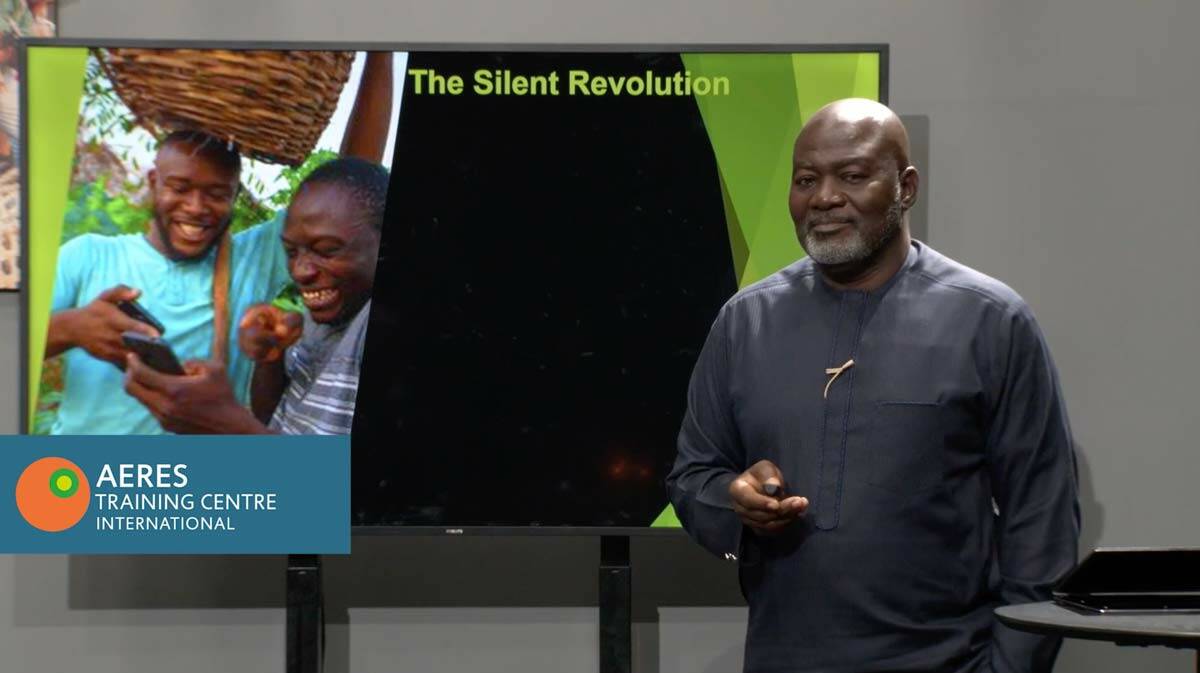
‘Gyenom Dau talks about the chances of poultry as a future proof protein source in fast growing Africa, during the 50th anniversary webinar of Aeres Training Centre International in September 2023.’


Text: Sabien Froger Photo’s: Gyenom Dau
In 2007, Gyenom, known as Gee, travelled from Kaduna, Nigeria to Barneveld. He was schooled as a lawyer but went back to his hometown to help with the family’s poultry farm. To gain more knowledge about managing a farm, he took the opportunity to study at ATCI. To this day, he keeps in touch with his peers and tutors and remembers his time in Barneveld as very special and important.
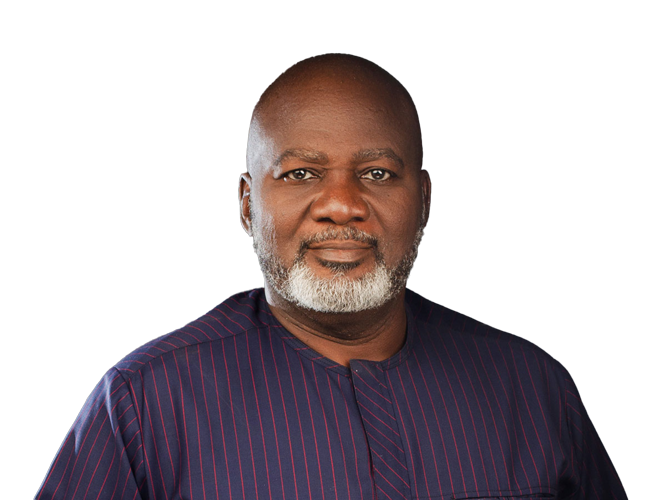
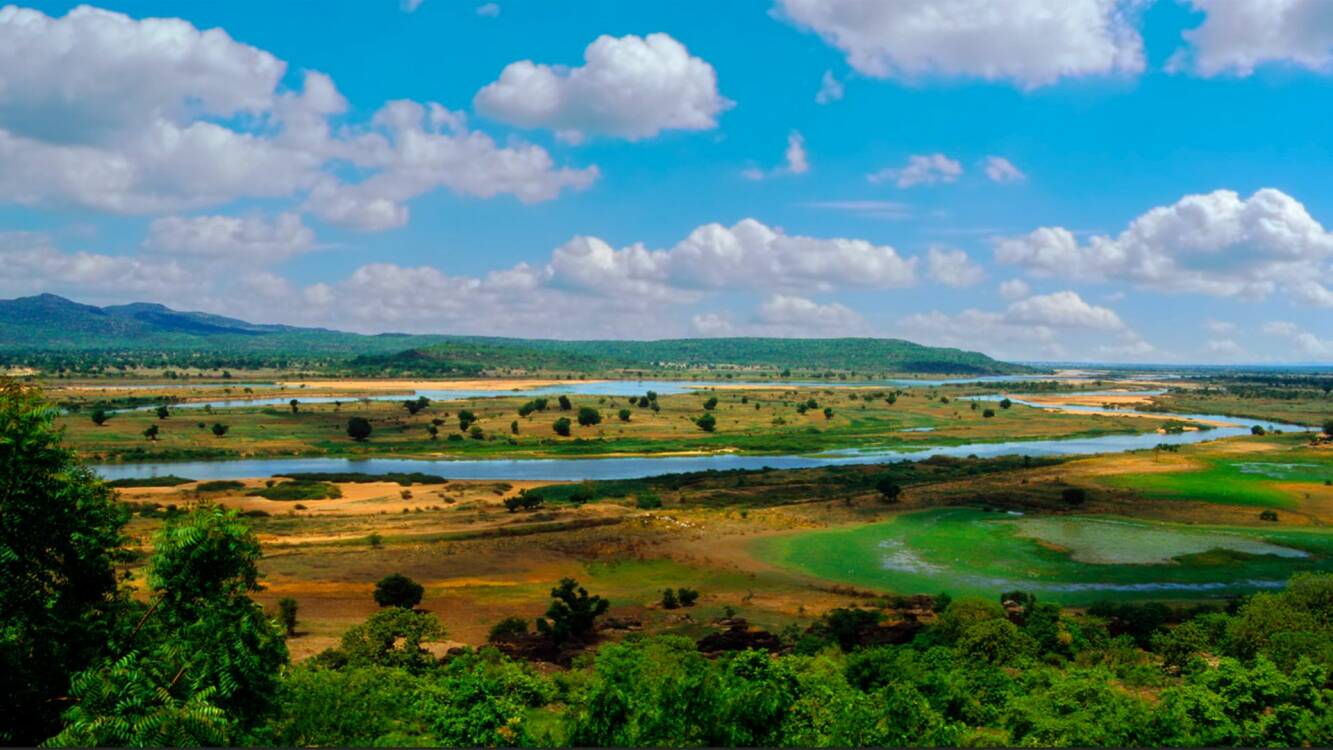

Gee sees a lot of potential in chickens as a sustainable protein for the future. “We face a big challenge because Africa’s population will grow significantly and we need to feed all those mouths. If you ask me, chickens are the most efficient protein source.” Gee’s advice to future students of ATCI to just take in as much information as possible. Take every chance to soak the knowledge in and realise that you are given a very unique possibility to not only better your own life but the lives of people at home.”
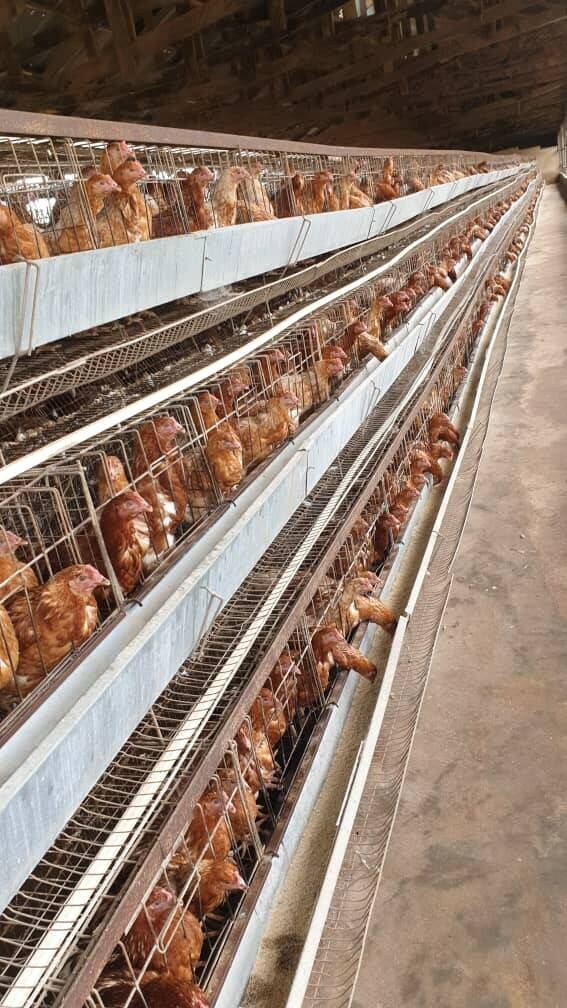
The same applies to the feeding of the animals. “In Nigeria, we just buy what is cheapest. But what is cheapest isn’t always the best for you chickens. You tend to compare food just by price, but there are a lot more factors that you should take into consideration when choosing bird feed. More expensive feed, means better feed, means healthier chickens and subsequently more revenue because you have less dead chickens. If birds get sick less, you don’t have to buy as many drugs and the vet doesn’t have to come, so you save that money. In the end, it may turn out to be cheaper than the cheap feed you were using.”
When Gee got back to Nigeria and his farm, he decided to start his own poultry management and feed milling consultancy service. He named it OVO Concepts. “Right now, that is my main activity. We are a family business, so I am not the only one working there, which means that younger members of the family and other staff keep the farm running from day to day. I advise people who want to set up a farm about a lot of aspects: we do some feasibility reports for them, inspect the location where they want to set it up, give them advice on management and get them a good overall start.”
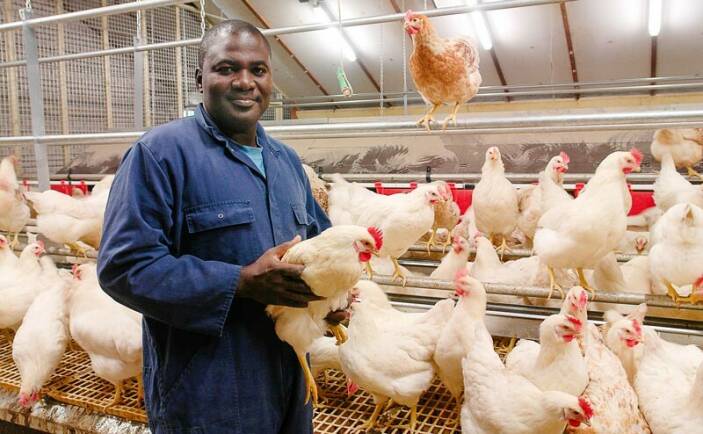
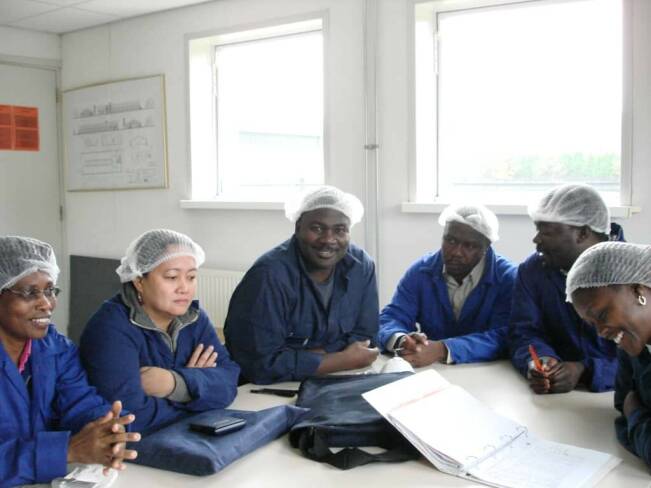
Gee experienced a lot of differences when he got to the Netherland. “Of course, it is a very different country and the culture and people differ a lot from Nigeria. But I already knew that because I visited Europe before. In fact, until I was eight years old, I lived in Great-Britain and I went to school there. So I was already used to the weather for example, luckily. Because of course, it is way colder than in Nigeria.” Besides the cultural differences and colder climate, Gee noticed a big difference in the way farming is practiced. “In Nigeria, when our birds get sick, we just call the vet who prescribes drugs for example. We don’t think so much about the reasons why the birds get sick and what we can do to prevent it. In the Netherlands, the focus is much more on the prevention of sickness and what you can do to keep the birds healthy, happy and productive.” The same applies to the housing of the poultry. “In Nigeria we just use the cheapest materials that are available to us. Most of the time, that means roofs out of aluminium. Naturally, that is not the best choice for the climate, because it conducts a lot of heat from the sun, which is very strong in our country. That is why, at certain times of the year the birds are getting sick and we don’t really think about why that happens. At Aeres I learned a lot about in what environment and housing the birds thrive and stay healthy. That was really life changing.”
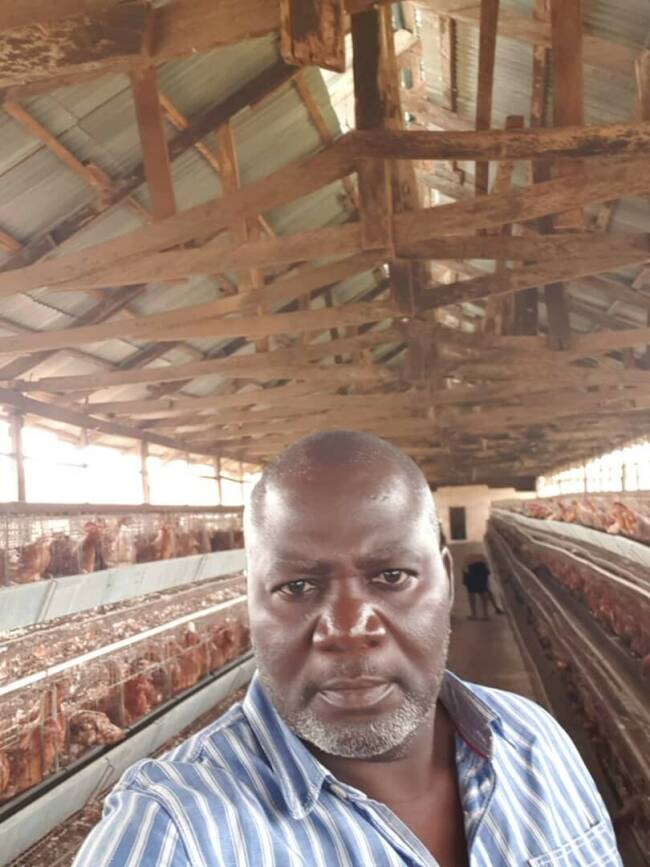
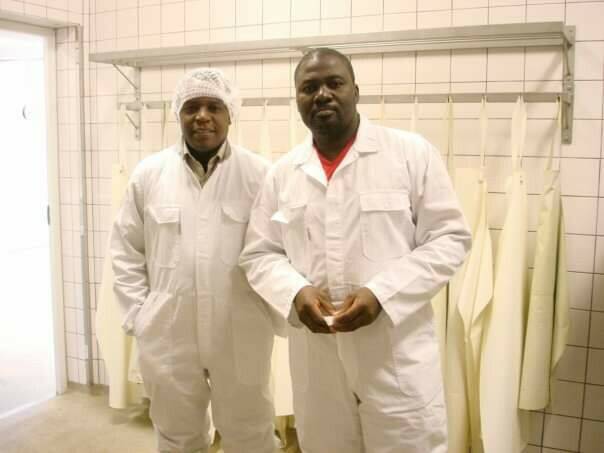
In 2007, Gee made the long journey from Nigeria to the Netherlands to start his courses in poultry and feed milling. “I immediately felt like the courses were designed with me personally in their mind. It fit me like a glove. The ‘learning by doing concept’ was very appealing and a new and valuable experience.” In Nigeria, the way of teaching is more focused on reading, attending seminars and workshops, but there isn’t a big focus on the practical side, according to Gee. In his courses Gee learned more about a sustainable way to manage a poultry farm and for example what is important to keep in mind when choosing the kind of feed you give to your chickens. “When you are at home, just feeding the chickens and caring for them and running your business, you don’t think about the ‘small details’. At Aeres, that is the focus point.”
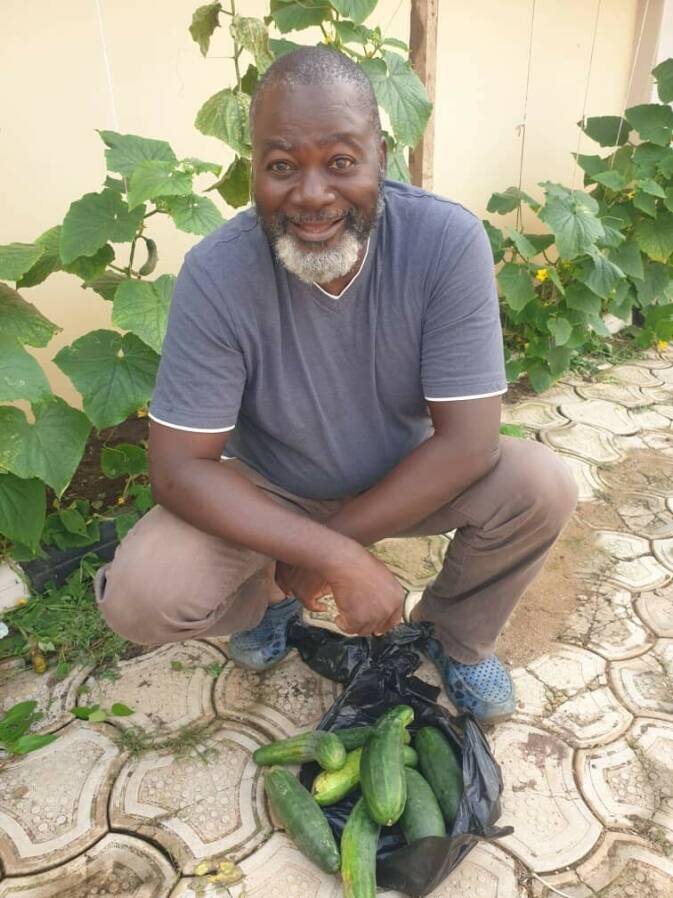

In the application form, appliers are asked to write something about the reasons why they want to follow the courses and explain how they would use the knowledge they take back to their business. “I wrote about my role of managing the poultry farm, and wanting, and needing, more knowledge. I described my work schedule, gave them a description of the farm and our staff and explained how I would help our community with my new knowledge.” Regarding the last part, Gee wrote about the industrial training programmes Nigerian agricultural schools incorporate in their curriculum. “The students have to take internships at local agricultural farms. We also took these students in, sometimes up to ten students at a time. We teach them our ways of managing and running the poultry farm and they take that knowledge with them in the remainder of their studies and beyond. So in that way, we influence their further career and help them to build better and more sustainable companies. That is why I wanted to have more knowledge about poultry farming.”
It took Gee three times to be admitted into the programme. “Later they told me that they did that on purpose. Not because they thought I wasn’t good enough or didn’t fit the programme, but because they wanted to test my resolve, how serious and motivated I was to get into Aeres. Well, that clearly worked because I kept trying every admission round and got in.”
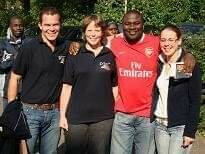
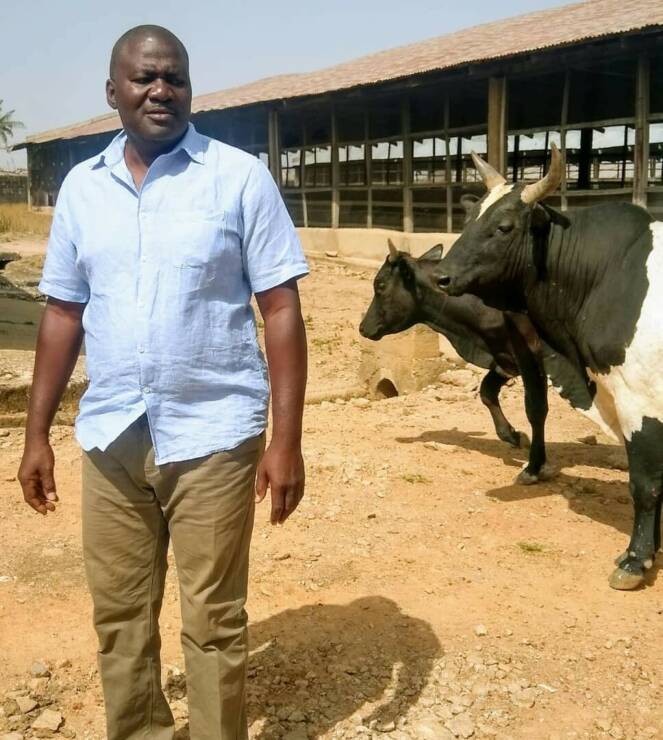
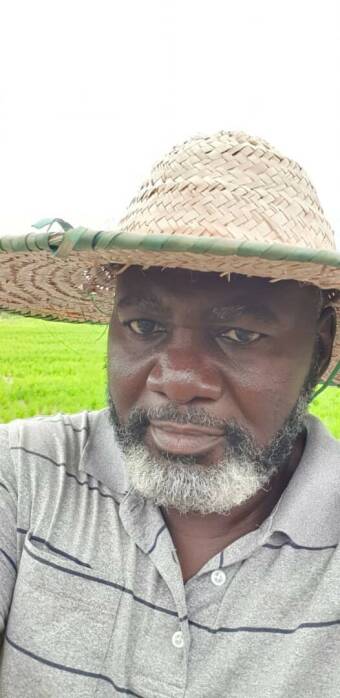
Gee learned about the existence of Aeres and ATCI when someone who attended the same church as his parents, was looking for people to support him on his application for the programme. “My parents redirected him to me, since I was the one running our families poultry farm. One day, he came into my office with a pamphlet. I was immediately interested and started doing research, after I helped him of course. That’s how I came to make my own application.”
